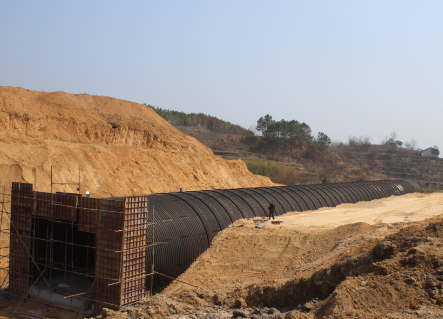Maximizing the Lifespan of GFS Water Storage Tanks
In the realm of water storage solutions, Glass-Fused-to-Steel (GFS) tanks stand out for their durability and longevity. However, just like any other infrastructure, the lifespan of GFS water storage tanks depends on various factors. In this comprehensive guide, we delve into the intricacies of GFS tanks, exploring their lifespan and offering insights into maximizing their durability.
What are GFS Water Storage Tanks?
GFS water storage tanks are constructed using a unique fusion of two materials: glass and steel. The process involves fusing the glass coating to the steel substrate at extremely high temperatures, resulting in a highly resilient structure that combines the strength of steel with the corrosion resistance of glass.

Key Features and Benefits
Durability: GFS tanks are renowned for their exceptional durability, capable of withstanding harsh environmental conditions and corrosive substances.
Corrosion Resistance: The glass coating provides an impermeable barrier that prevents corrosion, ensuring long-term reliability.
Low Maintenance: Due to their corrosion-resistant properties, GFS tanks require minimal maintenance compared to alternative materials, reducing operational costs.
Versatility: GFS tanks are suitable for a wide range of applications, including municipal water storage, wastewater treatment, industrial processing, and agricultural irrigation.
Factors Influencing the Lifespan of GFS Tanks
Environmental Conditions
The lifespan of GFS water storage tanks can be significantly impacted by the prevailing environmental conditions. Factors such as temperature fluctuations, exposure to UV radiation, and the presence of corrosive substances in the water can affect the longevity of the tank.
Quality of Installation
Proper installation is critical to ensuring the optimal performance and longevity of GFS tanks. Improper installation techniques or inadequate surface preparation can compromise the integrity of the glass coating, leading to premature failure.
Related articles:Construction & Real Estate
Maintenance Practices
How to insulate a shipping container home for extreme climates?
GFS Water Tanks: A Solution for Reliable Water Storage
Different Types of INDUSTRIAL FLOORING
Where are Motor Trend floor mats made?
What are applications of Redispersible Polymer Powder in construction?
What does it mean to be tempered with something?
Regular maintenance is essential for prolonging the lifespan of GFS water storage tanks. This includes routine inspections, cleaning, and repair of any damage or deterioration to the glass coating. Neglecting maintenance can accelerate corrosion and reduce the lifespan of the tank.
Water Quality
The quality of the water stored in GFS tanks can also impact their lifespan. High levels of acidity, alkalinity, or contaminants in the water can degrade the glass coating over time, compromising its protective properties and reducing the lifespan of the tank.
Maximizing the Lifespan of GFS Tanks: Best Practices
1. Proper Installation
Ensure that GFS tanks are installed by experienced professionals using recommended techniques and materials. This includes thorough surface preparation and adherence to manufacturer specifications.
2. Regular Maintenance
Implement a proactive maintenance schedule that includes periodic inspections, cleaning, and repair of any damage. Promptly address any issues to prevent corrosion and prolong the lifespan of the tank.
3. Water Quality Management
Monitor the quality of the water stored in GFS tanks and implement measures to maintain optimal conditions. This may include filtration, pH adjustment, and regular testing to identify and mitigate any potential issues.
4. Protective Coatings
Consider applying additional protective coatings to enhance the durability and corrosion resistance of GFS tanks, especially in environments with aggressive water conditions or high UV exposure.
5. Monitoring and Surveillance
Utilize advanced monitoring and surveillance technologies to detect early signs of corrosion or deterioration in GFS tanks. This allows for timely intervention and maintenance to extend their lifespan.
Conclusion
In conclusion, GFS water tanks offer unparalleled durability and longevity, making them a preferred choice for various applications. By understanding the factors that influence their lifespan and implementing best practices for installation, maintenance, and water quality management, stakeholders can maximize the longevity of GFS tanks and ensure reliable water storage solutions for years to come.
Explore more:Unveiling the Most Popular Calacatta Quartz Varieties
Can Tombstone Benches Be Customized with Personalized Engravings?
Exploring the Diversity of Prefabricated Container House Styles and Configurations
Benefits and Applications of Studded T Posts
Demystifying Threaded Rod Grades: What You Need to Know?
10 Tips About Geogrid
From Rustic to Modern: Design Inspirations with Black Stainless Steel










